London welcomed thousands of art lovers to the city this past weekend with exciting art fairs and exhibitions leading up to the ever-present ‘Frieze London’. However, this year I decided to take a different approach to understanding multiple art forms. Intrigued by its synopsis, I attended a performance by Goshka Macuga in collaboration with Ansuman Biswas as part of the fascinating exhibition Tagore’s Universal Allegories. The live event was a musical interpretation, based on the legendary conversation between Tagore and Einstein. The discussion questions philosophy, consciousness, beauty, art and science and perhaps the combination of them all.
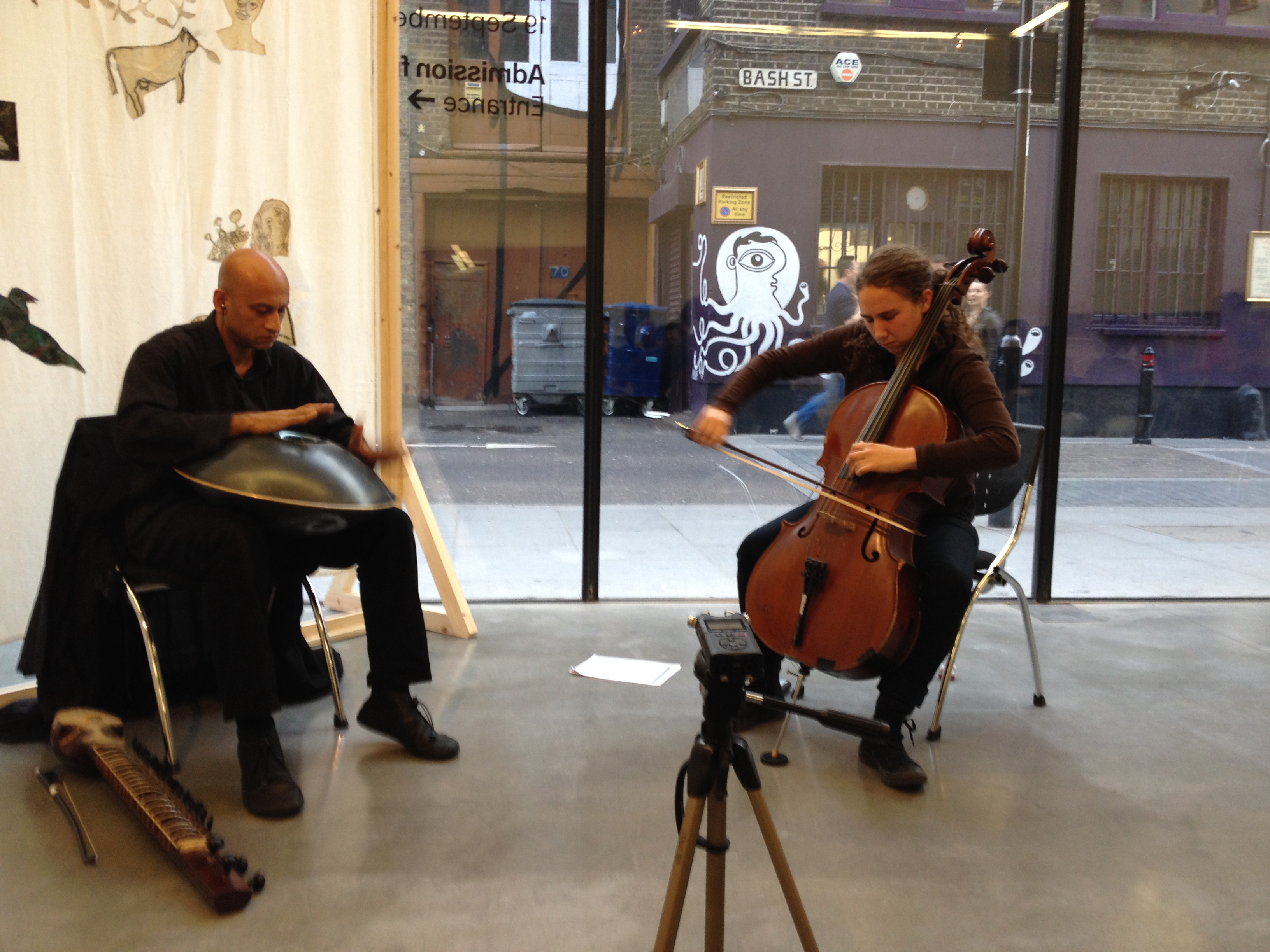
Parentheses on Truth, Beauty and Humanity
The performance was held within Rivington Place’s main ground floor exhibition space, surrounded by works by Anna Boghiguian. Immediately the scenery had a very real essence. The setting was both intimate and extremely vibrant since it has an inviting window, which allowed for the public to be involved. Biswas talked upon the core of the conversation and announced that he and a Cellist, Hannah Marshall, will be listening to the discussion via earpieces, creating the music through improvisation.
The piece began with Biswas channeling Tagore with the Estraj (an Indian Instrument) and Marshall emulating Einstein with the Cello. You could feel the exchange of intelligence and the intensity of energy between the two instruments. They complimented one another, yet also juxtaposed (much like the depth of the conversation). An interesting change of Indian instruments from the Estraj to the PanArt, I feel, was a symbolic representation of the transition from the subject of Eastern to Western music. The introduction of the PanArt gave the performance a more melodic, contemporary feel. The pace and rhythm became much more energetic as the communication strengthened.
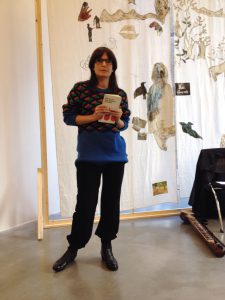
Goshka Macuga introduces the event
In my opinion the core of significance throughout this performance was the theory of translation. The power of exchange between the outside (public), the transcript (via ear piece) and the delivery of music was remarkable. The performance became a cyclical conversation. I began to ponder upon the concept of relationships; the relationship we have with one another. The bond of humanity is far more dominant than we could ever imagine. We share more similarities than differences. Therefore, vocality and exchange of foresight is imperative.
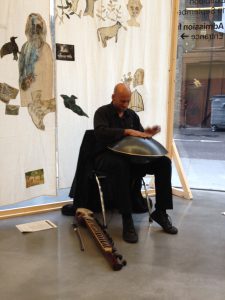
Ansuman Biswas
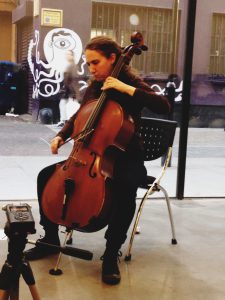
Parentheses on Truth, Beauty and Humanity
The wondrous factor about music is that it is a subjective experience. One can take and leave what they want from a vibration. That is the beauty of it. Through this impactful conversation, both Einstein and Tagore capture the fundamental notion of ‘questioning’. Questioning a higher power, seeking knowledge and gaining an inner truth. This divine live display of internal education and external rhythm was a stunning ode to their legacy.
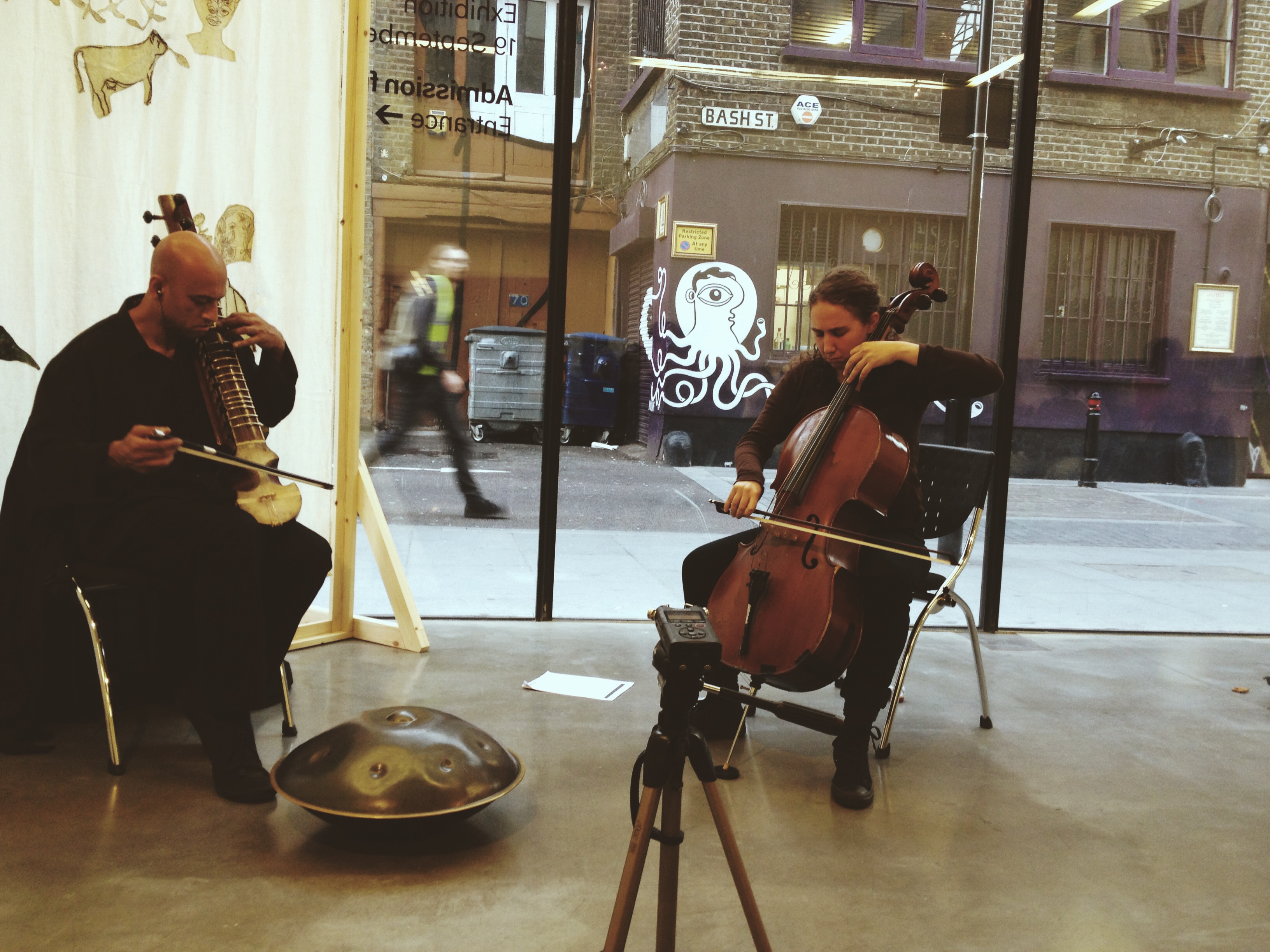
Parentheses on Truth, Beauty and Humanity
Ansuman Biswas performs again this Thursday 24 October in Reading Between the Lines, an interactive talk drawing together the many strands of Tagore’s legacy into a recommendation for action. Biswas will talk, sing, and play a variety of musical instruments, leading people through an active process of meditation, contemplation and vocalisation.
By Alicia Melanie Alicia Melanie is a Fine Art student at Middlesex University whose interests include art, culture and travel. Read more blog posts by Melanie on her own blog, The Visual Life.